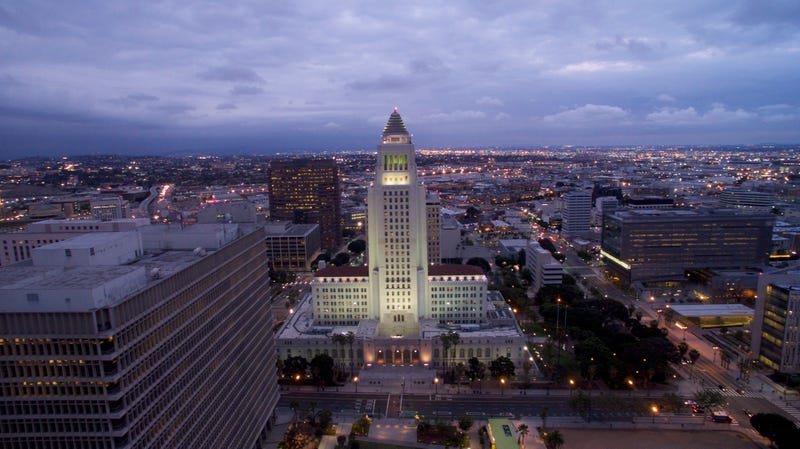
LOS ANGELES (KNX) - Curren Price just became the fourth Los Angeles city councilmember to face criminal charges in as many years — a stunning statistic for a council that only has 15 seats to begin with.
L.A. seems to be endlessly plagued by one corruption scandal after another. Two Department of Water and Power officials and a top lawyer in the City Attorney’s office have been sentenced after an overbilling investigation. Former Mayor Eric Garcetti’s office was notoriously plagued by harassment allegations.
And of course, there was last year’s leaked audio recording of three councilmembers making racist jokes and threatening to beat up a toddler while discussing how to gerrymander the redistricting process.
“I never, ever had a sense that LA was a dirty city,” Darry Sragow, a political strategist and USC professor, told KNX In Depth. “It turns out, that’s not really accurate.”
Unlike some major cities (like Chicago) that are infamous for their corruption, L.A. historically had a fairly clean reputation, Sragow said. That’s partly because of how L.A.’s city government is structured.
“The other cities probably got reputations for being less than clean because they were, at least back in the old days, run by political machines,” he explained. “We didn’t want to have that kind of a political machine, or strong mayor, running the city.”
Instead, L.A. invested most of its power in the city council – which hasn’t grown from 15 members since 1925, even as the population has quadrupled. This leaves an immense amount of influence in the hands of barely more than a dozen people, and that kind of influence is ripe for exploitation.
“The decisions that get made by … City Council have very concrete, tangible, financial impacts on a lot of players, notably developers, when it comes to land use decisions, but also on city contracts,” Sragow said. “I think there’s just a temptation on the part of some individuals who hold those local city offices to succumb to the wiles of people who are gonna gain advantage from decisions that they make.”
Sragow said that voting out corrupt officials won’t fix the problem — their replacements could always end up falling into the same behavior as their predecessors.
“I know these four [councilmembers charged with crimes], and I always thought they were straight and clean. I really did,” he said. “I look at people who clearly are well-credentialed and well-intentioned when they started out, and they wind up in this kind of situation, so the answer has to be structural.”
He noted that L.A. already has heavily-regulated campaign ethics laws, which ban developers from making political contributions. But, as recent history illustrates, local officials aren’t always opposed to taking money under the table.
The only real solution, in Sragow’s opinion, is to rethink how we do city business entirely.
“I suppose you have to look at how decisions are made that have financial impact on entities like developers and city contractors, and maybe take them out of the political realm as directly as they are now,” he said.
City Council is already considering other reforms to combat corruption, including changes to the redistricting process and the possibility of expanding the number of council seats.
Follow KNX News 97.1 FM
Twitter | Facebook | Instagram | TikTok


